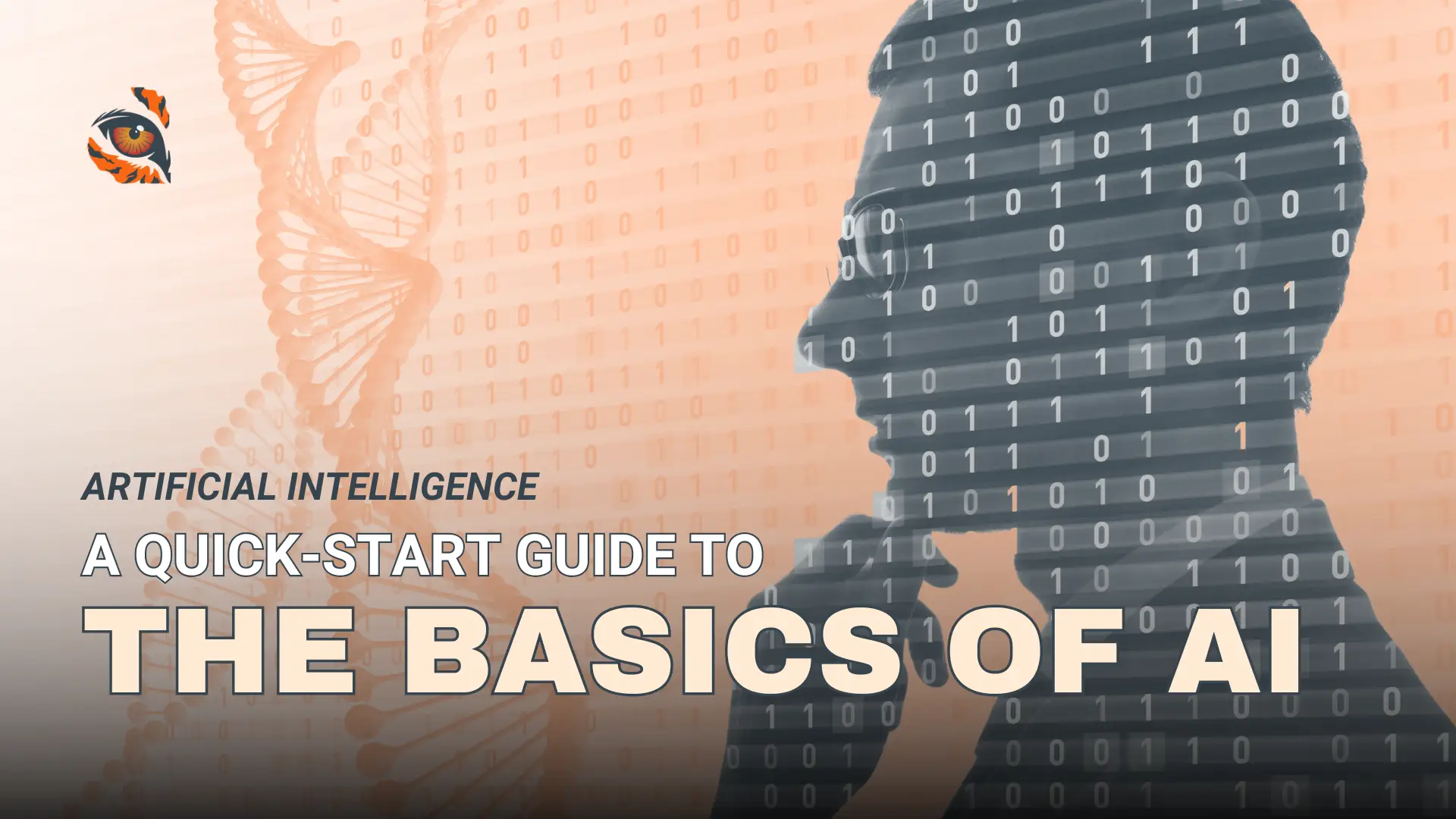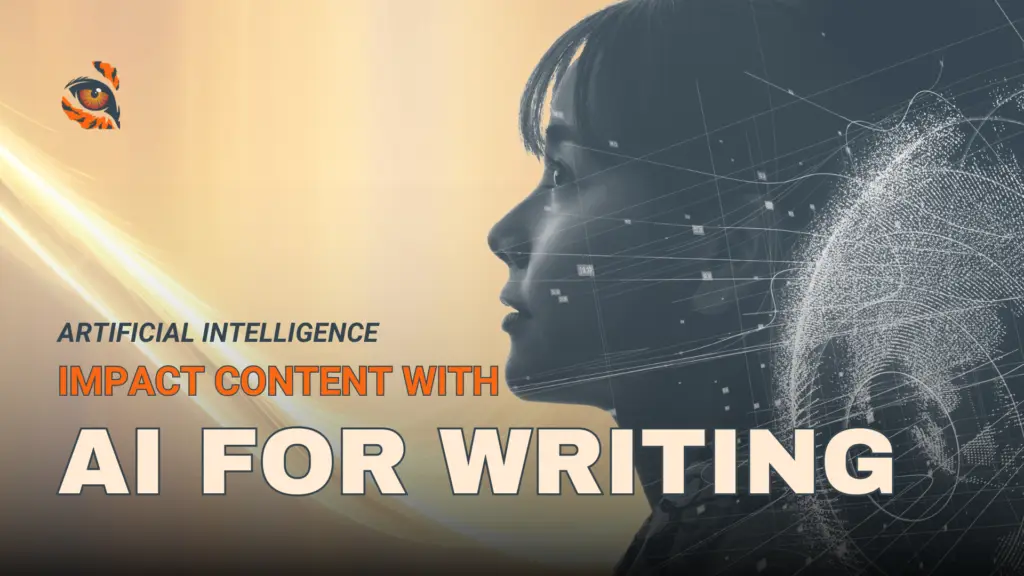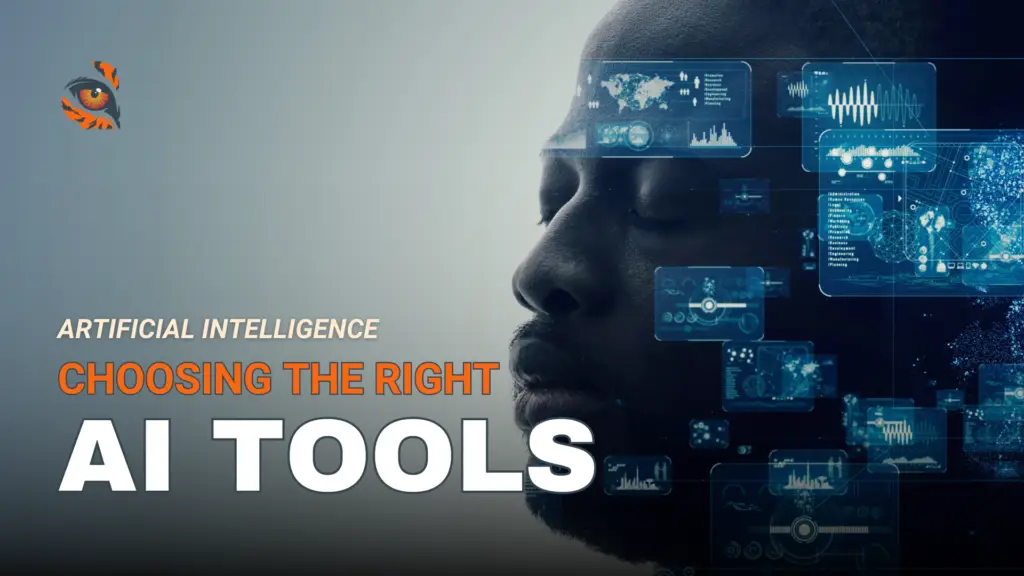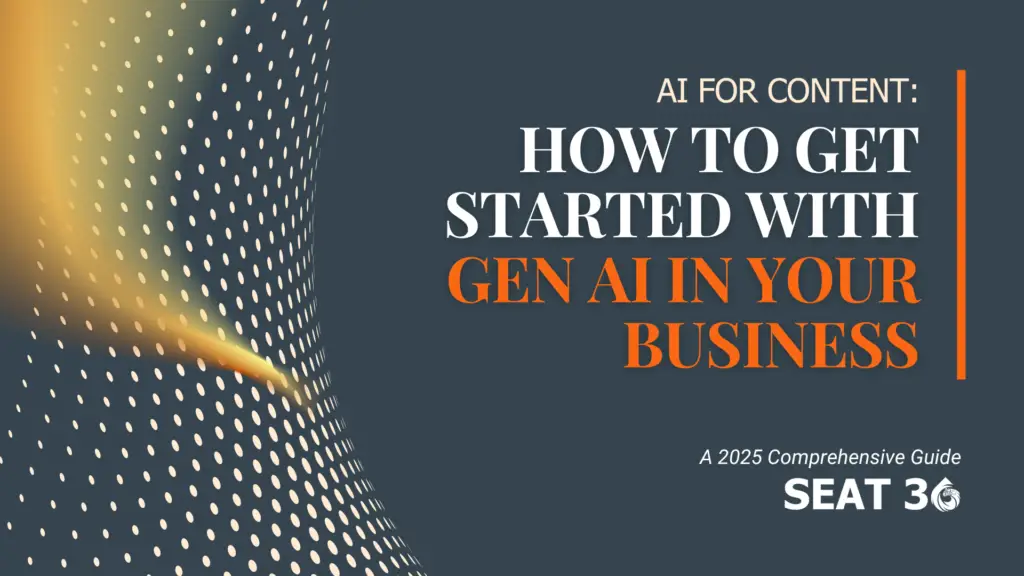Artificial Intelligence 101: A Quick Guide to the Fundamentals of AI for Marketing

Generative AI offers massive potential for marketers to create higher quality work faster. But the technology can be challenging to master, making it difficult to turn potential into action. So let’s strip AI down to the essentials – its capabilities, strengths, flaws, and how to put it to work for you, rather than competing against it.
By Jared Frank | 10 min read
Last Updated: February 12, 2025
Artificial Intelligence is no longer just a buzzword. It’s a powerful tool transforming industries across the globe. For marketing professionals, AI offers exciting opportunities to improve customer targeting, streamline campaign management, and generate high volumes of content more efficiently. Whether you’re in need of an assistant to automate tasks, a thought partner to strengthen strategies, or a creative to deliver improved customer experiences, AI has something to offer your marketing team.
For those professionals just starting out with AI, it can feel overwhelming and even a bit confusing. So let’s demystify it and learn how you can begin experimenting with AI for marketing applications.
Key Takeaways
Think of AI as a new hire for your team – one who is smart, learns quickly, and never gets tired or bored even when executing mundane activities. From automating repetitive tasks to optimizing complex processes, AI supercharges your productivity.
AI outputs are NOT customer ready. AI makes mistakes, is biased and inconsistent, and lacks the institutional knowledge of your company. All AI work requires human polish before publishing.
AI is versatile and moves seamlessly across different business functions instantly. It can serve as your digital assistant, your strategist and brainstorming buddy, as well as your content creator that quickly generates a first draft of just about anything.
AI Defined for Marketing Professionals
At its core, AI refers to technology designed to perform tasks that typically require human intelligence. These tasks include recognizing patterns, solving problems, and even making decisions. Unlike regular computer programs, which follow specific instructions, AI learns from data and adapts over time, which is what makes it so powerful. From the autocorrect on our phones to smart assistants like Siri and Alexa, AI already exists in our lives in ways we might not realize.
AI is not new. The origins of this technology date back to the 1940s. When you hear “AI” today, it is likely in reference to Generative AI. This revolutionary technology takes text inputs to deliver desired outputs at lightning speed.
By now, you’ve probably heard of tools like ChatGPT, Claude, Perplexity, Microsoft Copilot, and Google Gemini. These large language models (LLMs) are the keystone of Generative AI. Part of what makes them revolutionary is how we use them. Users interact with LLMs through native spoken/written languages (English for example), making these tools accessible to anyone. They require zero knowledge of coding languages to use. If you’ve ever had a text message conversation with a friend, you can easily use LLMs.
Many fields, from healthcare and finance to retail and transportation, currently leverage AI. In healthcare, for instance, AI helps doctors diagnose diseases faster by analyzing large amounts of medical data. In finance, it detects suspicious activities, helping to prevent fraud. These practical applications not only save time and costs but also improve accuracy and decision making. AI has the potential to significantly impact every industry. And as it continues to evolve, its influence will only grow.
The Strengths and Benefits of AI for Marketing
Think of AI as a new hire for your team – one who is smart, learns quickly, and never gets tired or bored even when executing mundane tasks. Your new team member is highly versatile, data-driven, analytical, creative, and moves seamlessly across disciplines.
For marketing professionals, AI offers an incredible toolkit to enhance everything from audience targeting to campaign efficiency. One of AI’s greatest strengths is its ability to sift through massive amounts of data, which allows marketers to understand customer behaviors and preferences with precision. Instead of guessing who might be interested in a particular product or service, AI analyzes previous interactions, website behavior, and even social media engagement to find patterns and insights. Marketers can better reach the right people with the right message at the right time, ultimately leading to better results and happier customers.
AI also automates repetitive and time-consuming tasks, freeing up marketers to focus on more strategic work. For example, AI schedules social media posts, personalizes email campaigns, and even manages paid ad bidding on platforms like Google and Facebook. By automating these processes, marketing teams can run campaigns that adapt in real-time to customer engagement levels without constant oversight.
Perhaps one of the most exciting benefits of AI for marketers is its capacity to create highly personalized customer experiences. AI-powered tools dynamically adjust the content a customer sees based on their past interactions, making every touchpoint more relevant and engaging. Whether it’s tailoring website content, product recommendations, or even chatbot responses, AI enables marketers to offer a more customized journey that resonates with individual customers. This level of personalization builds stronger customer relationships, boosts loyalty, and ultimately drives conversions.
The Weaknesses and Flaws of AI for Marketing
While AI is powerful and versatile, it does have its limitations. First off, it makes mistakes (called hallucinations) about 5% of the time. Marketing leaders should check its work as if it were an intern. This human review makes all the difference. Furthermore, AI will never possess your human empathy or emotional intelligence. Relying too heavily on AI will erode the human connection you have with your customers.
AI models are only as good as the data they’re given. Garbage in, garbage out as the saying goes. This dependency on data quality means that marketers must regularly check and refine the data feeding into their AI tools. Otherwise, you risk missing important nuances and making poor decisions.
Additionally, AI models learn from human inputs, therefore are not without bias. Human beings are biased; thus, the machine is biased. Also, because AI is only as knowledgeable as its training data, its knowledge is limited. It is only trained on publicly available information, so it has no institutional knowledge of your company. It is also not always informed of current events, and some models are six to 12 months out of date.
Core Capabilities of AI for Marketing
AI brings a suite of core capabilities to transform how marketers engage with their audiences and internal stakeholders. One of these valuable capabilities is the capacity to analyze large amounts of data, text, and images, synthesize that content, and quickly generate key findings. This analysis enables marketing teams to create more targeted campaigns, forecast demand, and allocate budgets more effectively.
Personalization is another standout capability that AI offers. The ability to create images, generate code, and write text in any language, tone, or style in an instant makes it easier to deliver unique experiences to customers across all channels. This level of personalization goes beyond generic segmentation, allowing marketers to deliver content that feels truly customized, resulting in higher engagement and stronger brand loyalty.
AI also excels at providing feedback and generating ideas. It is an excellent brainstorming partner and can coach you through a complex problem. It can also roleplay and imitate conversations with customers or internal decision makers to identify, anticipate, and solve for potential objections.
The Three AI Personas
AI personas are specialized roles that capture the diverse ways AI can support marketing efforts, acting as virtual “team members” with distinct strengths. These three personas each bring unique capabilities to the table. Introducing the Assistant, the Strategist, and the Creator.
The Assistant
The Assistant streamlines daily tasks and supports marketers by handling routine, time-consuming activities. For example, the Assistant can take notes, prep your meetings, schedule social media posts, and prioritize your to-do list. By taking on these administrative tasks, The Assistant allows marketers to focus on higher-level strategy and creativity.
The Strategist
This persona excels in analyzing data and guiding decision making. The Strategist can review large volumes of data, uncover patterns, and provide actionable insights, making it invaluable for planning campaigns, setting budgets, and optimizing resource allocation. The Strategist is particularly helpful for predicting trends and customer behaviors, allowing marketers to make data-driven decisions with confidence. Additionally, the Strategist can review your work, play devil’s advocate, and highlight gaps and unintended consequences, resulting in higher quality decisions.
The Creator
Lastly, the Creator brings a creative edge to marketing efforts. The Creator can design visuals or write copy, making it an ideal companion for crafting engaging marketing materials. From developing social media posts and email campaigns to generating visual concepts and video scripts, The Creator adds a layer of creativity that helps marketers keep content fresh and relevant. While it won’t replace a human’s unique artistic vision, the Creator is a powerful tool for generating first drafts quickly, which accelerates content production and gives marketing professionals a solid foundation on which they can build their brand’s voice and personality.
How a Beginner Can Get Started with AI for Marketing
Getting started with AI might feel daunting for a beginner, but there are accessible steps any marketing professional can take to ease into this technology. First, explore any of the countless articles (like this one), videos, or even podcasts focused on AI for marketing to see how other marketers are successfully using AI to enhance their strategies. Additionally, many online courses and resources are available for free or at a low cost, covering the basics in simple, non-technical language. The AI Crash Course from Section School is one I recommend.
Once the basics are in place, experimenting with a few beginner-friendly AI tools is a great way to build confidence and see practical benefits. Many marketing tools now come with built-in AI features, like social media schedulers that suggest optimal posting times or email platforms that recommend personalized subject lines. AI writing assistants can also help generate blog ideas, draft social media posts, or tailor email content. Starting with these low-commitment tools allows marketers to experience the power of AI firsthand without needing to learn complex skills.
Finally, joining a community of like-minded professionals can make the learning process more enjoyable and insightful. Many marketers share their experiences with AI through industry forums. Beginners can ask questions, get advice, and learn from real-world examples. Networking with others who are also learning about AI can offer new ideas, guidance, and inspiration, helping marketers feel supported as they integrate AI into their work. With time and practice, even the most AI-resistant beginners can find ways to use AI to their advantage.
Practice, Practice, Practice
Learning AI is no different than learning to play the piano or swing a golf club. To become proficient, you must practice every day. Implementing AI must be part of your daily routine to cultivate subject matter expertise.
For those marketers just starting out with AI, the journey doesn’t need to be overwhelming. Begin with small, accessible tools, learn the basics, and experiment with different AI personas to see which ones best fit your needs and workflows. With the right mindset and resources, beginners can quickly see how AI streamlines processes, improves strategy, and generates fresh content. As AI continues to evolve, staying curious, committed, and open to new possibilities will ensure you remain ahead of the learning curve. ![]()
Are you ready to start implementing AI into your marketing strategy? Let’s chat.
Write to Jared at [email protected].
Disclosure: ChatGPT helped ideate the first draft of this article. The author revised subsequent drafts and contributed original copy to better reflect the intended message and voice.
RELATED CONTENT

Using AI to Write Content That Customers Actually Want to Read
Many marketers dip their toes into AI waters believing their baptisms will yield instant results. But AI alone does not write well. Think of AI as a co-creator to enhance, not originate, marketing copywriting.

An Overview of the Best AI Marketing Tools for Your Small Business
Hundreds of AI marketing tools now exist to assist marketers with their craft. With the incredible volume of tools available, it can be overwhelming to shop for the right ones. Ditch the anxiety with this buyer’s guide of top tools.

